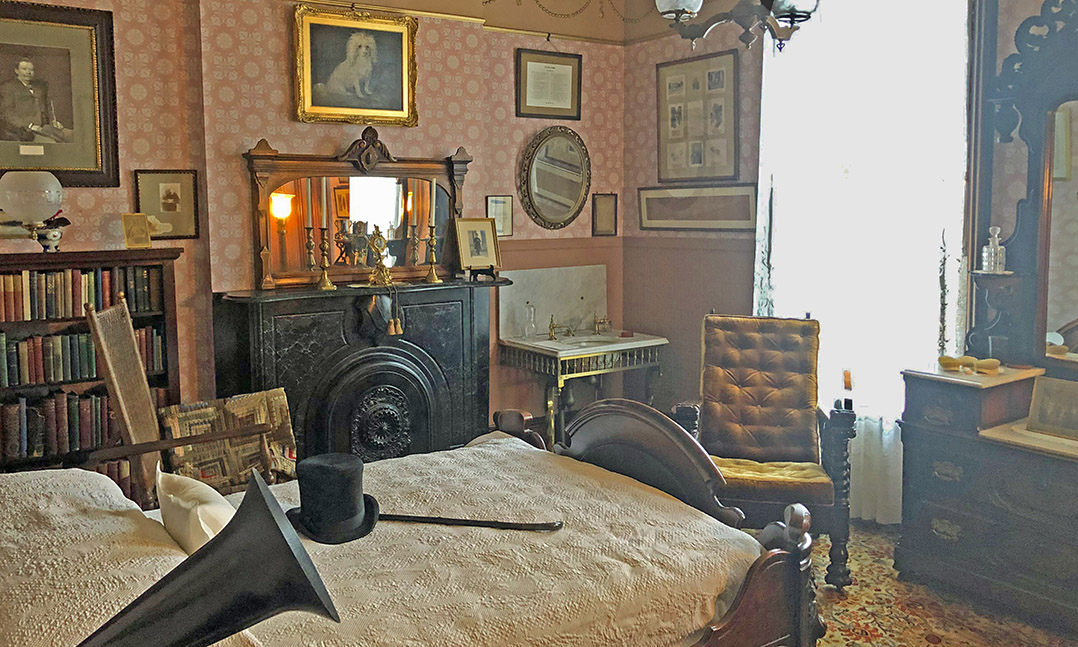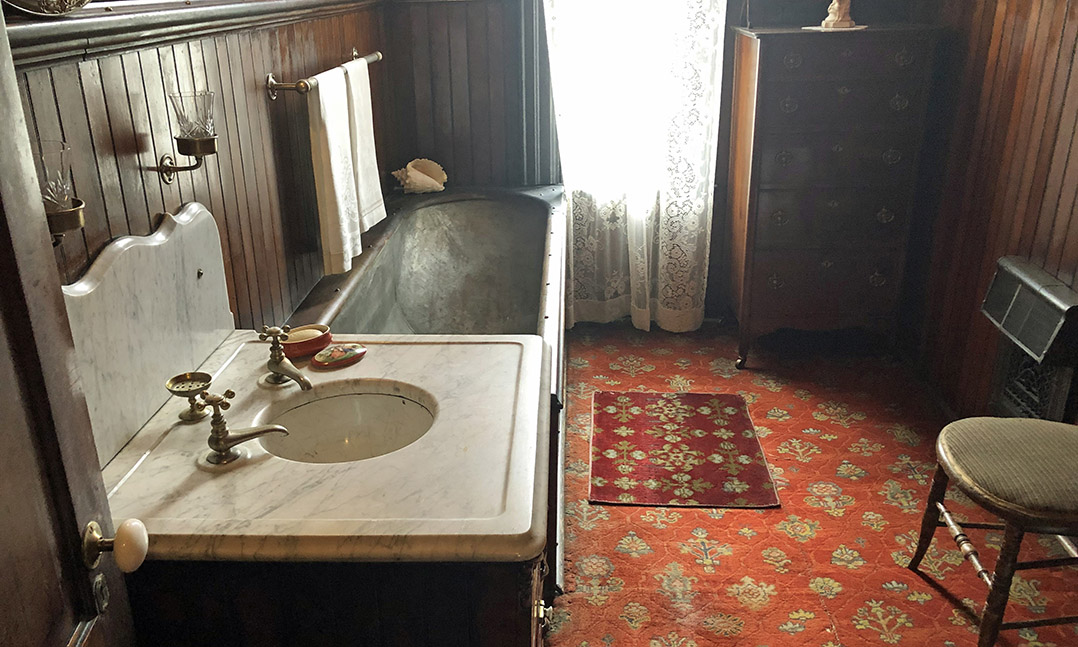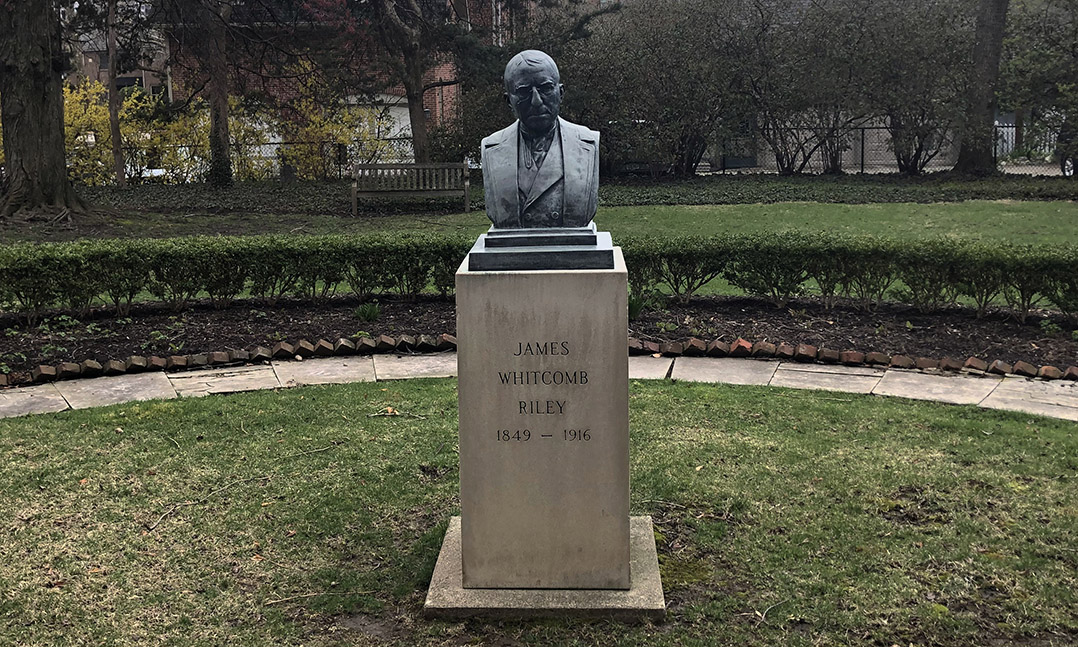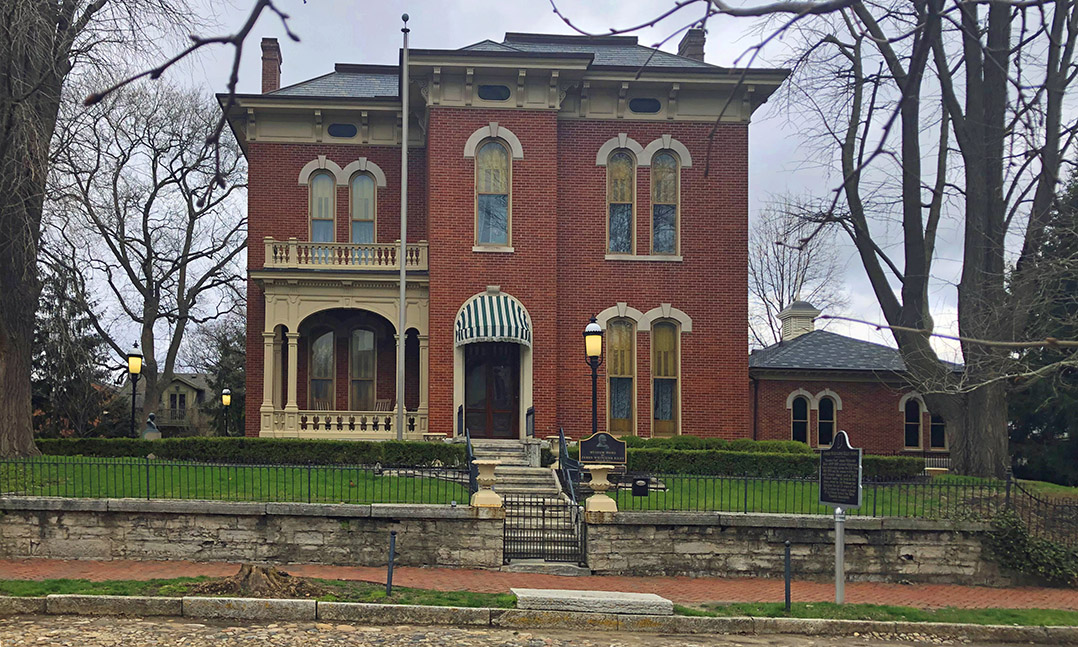The James Whitcomb Riley Museum Home, a National Historic Landmark since 1962, is perhaps the best-preserved Victorian home in the U.S.
In about 1870, Indianapolis baker John R. Nickum, who made a fortune producing hardtack for the Union Army, engaged Robert Platt Daggett, an Indianapolis architect, to design a house for his family in Lockerbie Square, then a suburban neighborhood just east of Indianapolis’ original mile square. When completed in 1872, the two-story brick Italianate house at 538 Lockerbie St. featured 14-foot ceilings, a flush toilet, copper bathtub, hot and cold running water (pumped to a rooftop tank), communication tubes and hand-carved woodwork. In 1893, Nickum’s daughter, Magdalena, and her husband, Charles Holstein, invited James Whitcomb Riley to live with them in the house. By then, Riley, a 43-year-old bachelor, was internationally famous and earning $1,000 a week reading his poems throughout the nation. He occupied the largest bedroom on the second floor, helping with expenses. Schoolchildren, who adored Riley’s poems, often visited him, as did a variety of notable people.
Riley died in his bed from a stroke on July 23, 1916. William Fortune, an influential Indianapolis entrepreneur, purchased the house and donated it to the James Whitcomb Riley Memorial Association, which opened it to the public in 1922 as a memorial to Riley. The Association later founded the Riley Hospital for Children. A visitors’ center, modeled on a carriage house, opened in 2004. Guided tours of the furnished house, with only the kitchen different from when Riley lived there, are available by appointment. Highlights include the room where Riley died, with his hat and cane on the bed, a library containing first edition books given to Riley by famous authors and a bust of Riley in the lawn. Lockerbie Street remains covered with cobblestones, as it was when Riley died.






